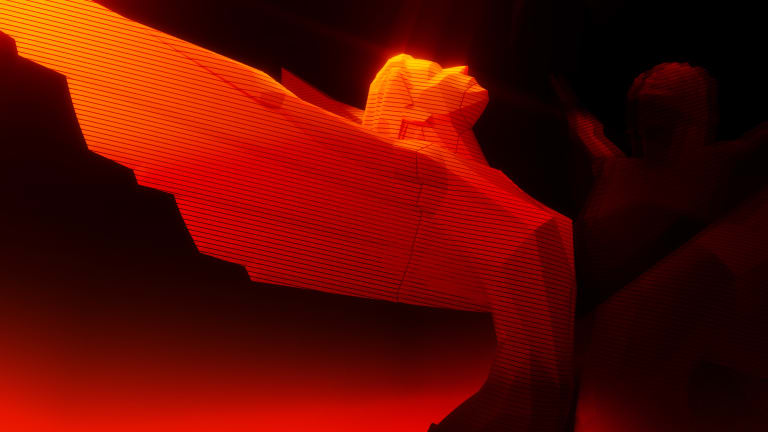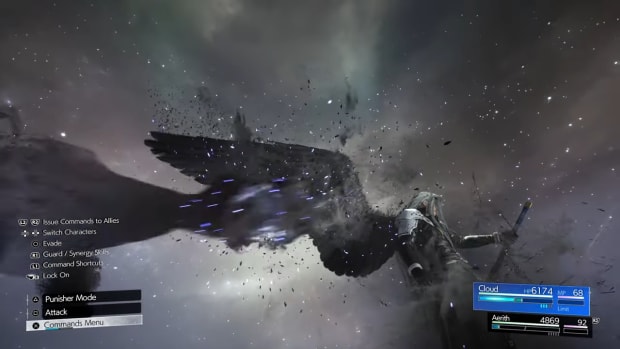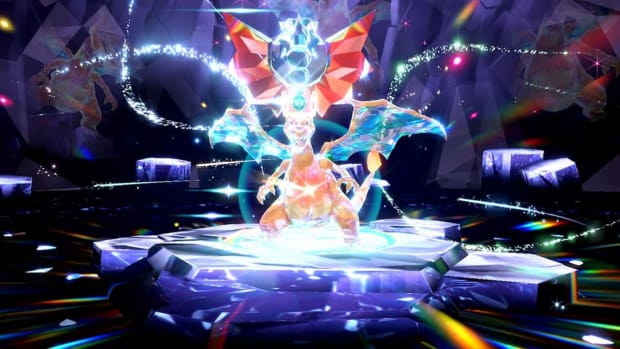
‘50-plus games involved’ in TGA’s most ‘cinematic show’ - The Game Awards’ Geoff Keighley

It’s a month out until The Game Awards 2022 and I’m speaking to its creator, Geoff Keighley, over a Zoom call as he prepares to reveal the nominees early next week. At this point in the process, the show is locked in, the team knows what games will be revealed and which studios are up for awards – unless there are any last-minute shifts and any games drop out.
Then there are the leaks. Just lately, a cottage industry has sprung up in games media circles, with supposed “insiders” dropping hints or outright leaks for upcoming reveals.
“It’s always tough because when you have 50-plus games involved in some way, something’s gonna get out,” Keighley says. “But yeah, [we have a] pretty good history, knock on wood, with the show and we usually keep some surprises.
“I was talking to one company, and they’re like, ‘Hey, we announced our game at The Game Awards, we have a spreadsheet of 143 things that we have to do immediately after.’ You know, updating the website and the social posts and things like that. So it’s just a lot of stuff that has to be coordinated. We’re hopeful we’ll get to surprise people.”
Thanks to the pandemic, The Game Awards 2022 will be the first show filmed in front of a live audience in three years. Around 1,000 fans will be in the room as the show airs, reacting live to the announcements and awards. Keighley says it will also be the most “cinematic show” the team has ever done, with stage theatrics ramped up significantly and backed by a live orchestra.
In good news for games journalists who will be covering the event, the plan is to host a shorter show this year and tighten it up. That doesn’t mean the show will be skimping on world premiers, of course.
“I don’t have a number for you, but it’s consistent with past years,” Keighley says. “We’ve got some existing games that are announced that will show brand new content, and then we’ve got a lot of new games to reveal as well. Lots of speculation online already about what will or won’t be there. I’m sure some rumors are probably not right, and they’re only going to intensify in the coming weeks.”
From the outside looking in, Keighley feels a bit like Game of Thrones’ Lord Varys. He’s got his network of little birds and he knows all the industry’s secrets. The show is at a point where it’s considered one of the most valuable stages to host a game reveal, despite primarily being a show about awards.
“We’re in an incredible position,” Keighley says. “We have so many games that pitch us on doing things at the show that the tough thing for me, honestly, is we just don’t have enough time to do everything we want to do. So I always turn down a lot of games, because we just don’t have the room to do things. The good thing this year, I was able to travel around a little bit more this summer and visit studios and take a look at games. I’m very, very excited about some of the stuff we’ve got in the show. There’s the big stuff, there’s small stuff – we really try to have a diverse slate of content.”
One of the biggest surprises at The Game Awards last year was The Matrix Awakens, a playable tech demo for the graphical potential of Unreal Engine 5. According to Keighley, we’ll see some of the games based on that tech at this year’s show, too.
“We’ve got some big Unreal Engine 5 games in the show,” he says. “Hopefully, our show excites you about the future of the medium and gets you excited about the future potential of games. Sometimes we’ll show games that won’t be out for a few years just to get people excited. But the balance now is like, does a game company show a game that’s coming out in three months versus coming out in three years? There’s been a sense of people trying to reel that in a little bit and the length between announcement and ship has been shorter, which I think is a positive thing.”
Over the last few years of the pandemic, it feels like Keighley has morphed into the north star the industry orbits around. Outside of The Game Awards, there’s also Summer Game Fest, which is an annual celebration of video games and game announcements, nestled in the hole in the wall where the E3 expo used to be. Of course, E3 says it’s coming back next year, and with a new organizer – ReedPop, the company behind PAX and Eurogamer.
“We’re all interested to see what ReedPop does with that brand,” Keighley says. “We’re very focused on Summer Game Fest – we’re feeling really good about the momentum behind what we’re doing there with all our partners. I think E3 is a brand name. And to me, the question is: who’s participating? What’s the experience? What is that going to be? Hopefully, there are some more details around that.
“We’re committed to doing something really big in the summer, working with the game companies. It’s really a time of year more than anything. I think people use the E3 brand because we’ve known it for 20 years, but to me, it’s just video game news happening in June. We haven’t announced a lot of details of what we’re doing next year, but we’re only going bigger with our plans around that.”
Keighley says he doesn’t see E3 as the competition, but it will be interesting to see which show the majority of the publishers choose to host their reveals with.
You can tune into The Game Awards on December 8.





